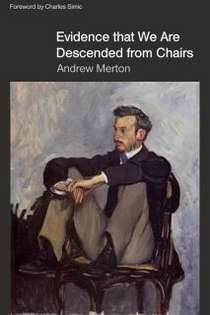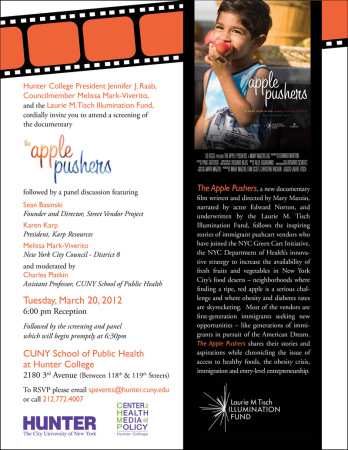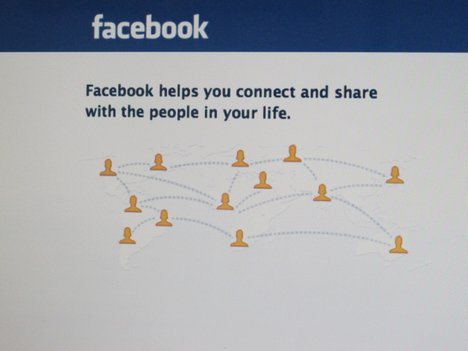On Andrew Merton’s Poem “coming out of a depression”
Joy Jacobson is the CHMP’s poet-in-residence.
 This week Andrew Merton’s first book of poems, Evidence that We Are Descended from Chairs, is being released from Accents Publishing. Merton may not be typical of a debut poet: he is an accomplished journalist and chairs the Department of English at the University of New Hampshire, where I was his student 30 years ago. I got in touch with him again when the founder of UNH’s journalism department, Don Murray, died in 2006. Murray and Merton had a strong influence on my writing life at that time, and now that I teach writing I’m grateful to recall what they taught me.
This week Andrew Merton’s first book of poems, Evidence that We Are Descended from Chairs, is being released from Accents Publishing. Merton may not be typical of a debut poet: he is an accomplished journalist and chairs the Department of English at the University of New Hampshire, where I was his student 30 years ago. I got in touch with him again when the founder of UNH’s journalism department, Don Murray, died in 2006. Murray and Merton had a strong influence on my writing life at that time, and now that I teach writing I’m grateful to recall what they taught me.
With this new book of poems Merton is instructing me in another way. As poet Charles Simic writes in a foreword, Merton’s “chief subject may be described as our human comedy mixed with tragedy.” A good example is this poem (reprinted with the author’s permission):
coming out of a depression
sleet
gravel in a chicken’s gutflies buzzing feebly against a screen
crows
morels at the foot of a dead apple tree
shadow of a hawk, receding
whisper of snakes on stone
the sun that powers the heart of a flea
a history of oceans
written on the underside of cloudsin a worn wicker basket
abandoned by a stream,
galaxies blooming
We might see this poem as a topographic map, demonstrating in relief the hills and valleys of a particular psychic landscape. Or maybe, more aptly, it’s a travelogue of the byways leading out of Hell. Regardless, we have little choice but to trust our guide.
We start in a season of bad weather. A single word, sleet, acts as both noun and verb of its own endless sentence. This is a place of ineffectual flies and of many birds, caged or scavenging or predatory. One life form here, the morels, are saprotrophic, feeding on dead things, and I imagine the apple tree to be reaching for the memory of the forbidden fruit it once bore. Thou shalt not eat of it, God warned, and I wouldn’t dare. In this place I wouldn’t even gather the morels for consumption. It’s an environment that reduces its raptor to shadow and retreat.
Those first six lines seem to me to be in whispered conversation with some other famous literary depressives: Yahweh, Poe’s raven, Keats’s narrator “half in love with easeful Death” from “Ode to a Nightingale.” But in Merton’s seventh line a movement evidenced only by the swish of snakeskin on stone changes the view. It’s a sound I can see. I’m reminded of a friend’s sumi ink-stick drawings; one in particular depicts a gray road winding through gray-black trees. A simple, colorless elegance.
Now with the eighth line a real and measurable power asserts itself. It may be no more significant than the electroconductivity taking place in the heart of a flea, but a life can revolve around that sun. And it does, here. A couplet emerges, and in it a pairing of water and language—a natural history written in clouds that must fall inevitably down.
A rain of words: a poet’s dream of redemption.
Merton’s final tercet calls forth a basket, left behind and emptied, apparently, of its cargo—the infant Moses, perhaps? And why not? The poem has recovered itself enough to form a stanza, a complex interplay of lines and images. It’s a free-verse universe but it’s ordered. Even during a clinical depression, involuntary body processes like heart rhythm and respiration are kept up. You’ve survived it again, the poem says. You walked through sleet and ate gizzards, and your powers of observation were never lost to you. Take a peek inside the basket, the poem invites. Go on: you’ll be stunned all over again to discover galaxies so numerous they can’t be counted. But they can be contained in the worn wicker of your mind.
You can watch Andrew Merton’s recent poetry reading at UNH, a video in three parts, by clicking here. And you can order the book from Accents Publishing.
Joy Jacobson is the CHMP’s poet-in-residence. This week







 It worked. As of Monday,
It worked. As of Monday,